Review for Memories Of Matsuko
Introduction
So there I am, finally entering the hi-def revolution, I've got the Blu-ray player, the high definition television, the home cinema, and I've got a calibration disc and have spent three hours setting up the TV so that it displays whatever I want to watch, at the best of its ability, with ideal contrast and brightness settings, and the colour just so. And what is the first Blu-ray disc that I watch after all this effort? Memories of Matsuko, director Tetsuya Nakashima's Technicolor explosion of melodramatic musical whimsy, guaranteed to test the integrity of your retinas while it moves your soul.
I've come to love the output of Third Window Films, purveyors of the finest, the most individual, and the most inventive in Far Eastern cinema. Whether or not you like the actual films, it's more than likely that you will never have seen their like before. But my first encounter with their output back at the start of 2009 was less than promising. That January, they delivered a one-two punch of Tetsuya Nakashima excellence, in the DVD releases of Kamikaze Girls and Memories of Matsuko. But both DVD releases were technically lacking, with letterbox transfers and burnt in subtitles. Worse for me, I got DVD-R check discs to review, which meant a lot of compression artefacts and the like. Kamikaze Girls was an instant hit with me, and when I noticed a Region 3 anamorphic release, I was importing before I even knew it. Then last year, Third Window Films released a Special Edition of Kamikaze Girls with the anamorphic transfer and a second disc loaded with extras (as well as a Blu-ray release), and it was triple dip time for me. I did opine at the time that Nakashima's even more visually striking Memories of Matsuko deserved equal treatment, but it wasn't until this year, with the same director's Confessions on the release horizon, that Memories of Matsuko got the upgrade, although this time it's Blu-ray only if you want an anamorphic picture and removable subtitles. Anything in italics is a cut and paste from my previous review…
Sho Kawajiri is a failed musician who left the family home two years previously to find his fortune in Tokyo, and who has done nothing much since then. It's July 10th 2001, and his girlfriend has just dumped him, when his father turns up with a container of ashes. He had never heard of his estranged aunt Matsuko, but she has just died. From what his father tells him, she had a promising career as a schoolteacher, an angelic voice, and everything going for her, when an incident in school got her fired, she stormed out of the house and was disowned by the family, and they lost touch until she was found in the park thirty years later, beaten to death, a vagrant old bag lady with nothing to her name. He tells Sho to go clean out her apartment, but as Sho starts going through his dead aunt's things, he's drawn into her amazing and eventful life.
Picture
At last, Memories of Matsuko gets a 1.85:1 widescreen transfer. It's a revelation in comparison to the original letterbox release, with a wonderfully sharp image, rich, lush and vibrant colours, and a depth and warmth that really brings the film to life. This isn't the film for you if you're looking for realism and accuracy of colour though. The saturation of the colours here is intense and powerful, and the film is part MGM musical and part cartoon. I was noticing details that were just lost on that first DVD; fairly obvious ones like the aged look applied to the film in the flashback sequences.
However I did spot a few flaws in the image. There were a couple of scenes with slight shimmer around fine detail. Three or four scenes with horizontal pans had an odd uneven judder to them, and there was one frame of picture break up and pixellation in the film. I'd love to tell you at which point exactly but for reasons that I will elucidate, that isn't possible.
Sound
The case says 5.1 Surround Sound, and there is a Dolby Digital Logo. I was prepared for a repeat of the DVD soundtrack. But my player flagged up a DTS-HD MA 5.1 Japanese audio track, which turns out to be quite the treat. It isn't a particularly dynamic and spatially discrete track, rather it's just a rich envelopment of sound that draws you into the musical world of Matsuko. It's the ideal way to experience the symphonic and pop opera soundscape and I had no complaints about the sound. The subtitles could have used a little proofreading though. There were more than a couple of typos, and one or two lines did seem to be absent.
Extras
Memories of Matsuko is presented on a BD50 coded Region B, with one of those animated menus that play out the key moments from the film. Don't linger on it too long. Just press play so that you don't have the film spoiled. I don't know if this was a combination of disc and my player, but the disc wasn't very friendly. It disabled my player timer, so I had no idea of time elapsed and time remaining (which is why I can't tell you where that frame of pixellation is), and it also failed to stick in the player's memory. Pausing playback was fine, but stopping it meant that the disc would boot up again from the beginning when play was pressed.
The extras are all on disc 2, a Region 0 coded single layer DVD disc. You'll find the Making of Matsuko, a 30-minute documentary with the usual behind the scenes footage and plenty of interviews with the cast and the crew. The Film To Storyboard Comparison actually offers a little more than the usual such featurettes, with some clips of rehearsal and filming, offering more of the stuff in between the storyboard and final film. This lasts 12 minutes.
New to this release is the Interview With Soundtrack Composer Gabriele Roberto. This lasts 22 minutes, and given that Memories of Matsuko is such a musical delight, this is a very appealing addition to the extra features. Jasper Sharp conducts the interview and they discuss the film, and Roberto's career in general. I was charmed to hear of how he broke into the business, and who it was that inspired him.
The disc concludes with 19 trailers for other Third Window product.
Conclusion
It's Amelie, but in the real world. Matsuko is the young idealistic girl, giving of herself and warm hearted, but from the beginning, life deals her deuces. She's the emotionally neglected one in the family, seeing everything revolve around her bedridden and frail sister. She tries nevertheless to earn her father's love and his pride. She has an angelic singing voice, and a promising career as a schoolteacher, but she gets sacked after being framed for a theft committed by one of her students, and when she unwisely tries to protect him. And so we follow her on a downward spiral through life, a series of poor decisions, abusive relationships, prostitution, prison, sheer bad luck, it could be an episode of Eastenders. But through it all, Matsuko manages to keep a positive attitude, to pick herself up and stride forward, head held high.
It's all seen through the eyes of Sho, who investigates his aunt's life, and learns of some larger than life exploits, and of the effect that she had on the people around her. It could easily have been the most depressing sort of kitchen sink drama, but director Tetsuya Nakashima turns it into a piece of Technicolor whimsy, a bright neon fairytale tragicomedy, where the unexpected is rife. After being beaten and then left bereft after the suicide of her writer lover, she becomes the mistress of his lesser talented rival. What better time to have a musical number with animated bluebirds whistling accompaniment? Sent to prison for murder? The perfect moment for a hip-hop montage of self-betterment.
The Memories of Matsuko is a delight of visual insanity. It's sad, funny, scary, joyous, uplifting, a mini-epic of a movie. It follows Matsuko through thirty years of her life, and it's a bumpy ride. At 2 hours and ten minutes, it's a tad overlong, and it does sag in the middle, but it also manages to engage all the emotions, and delivers an experience that makes you feel all the better for watching it. It's visually inventive, has a great soundtrack, and moving performances from a talented cast. It's no surprise that it was the hit of the Japanese Academy Awards.
I thought Memories of Matsuko was a good enough film when I first saw it, but the DVD presentation actually distracted from the viewing experience to a detrimental degree. It was so disappointing that I actually PVR'd the film when it was on Film4, just for the anamorphic broadcast. I never actually got the time to watch it again, but now that I have the Blu-ray, I can just delete it. Last night I was drawn into the story in a way that I never was the first time around. This Blu-ray is the way the film ought to be seen. It's made a good film spectacular. If you love Memories of Matsuko, and have yet to upgrade to high definition, then you may as well shell out for the Blu-ray kit; it's more than worth it!
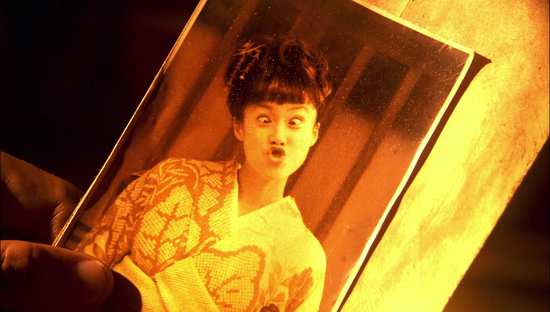

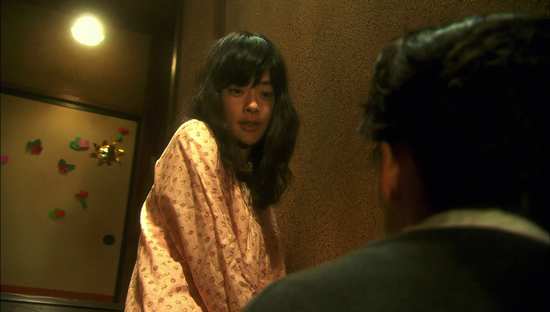
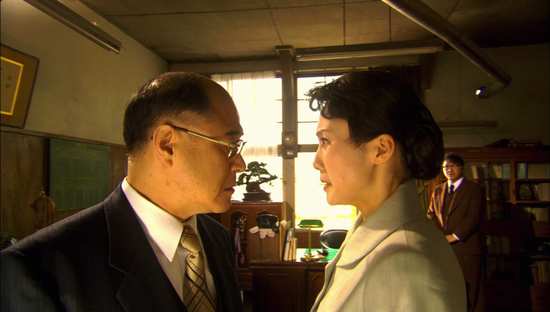


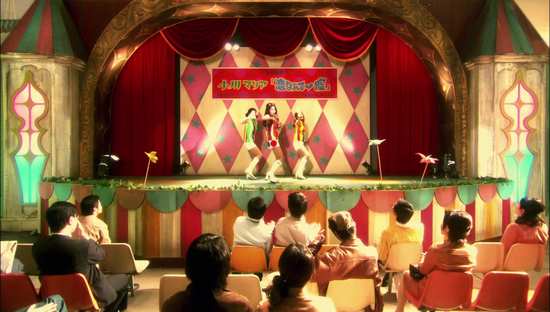

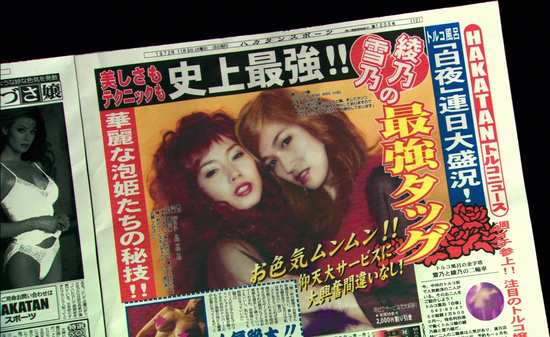
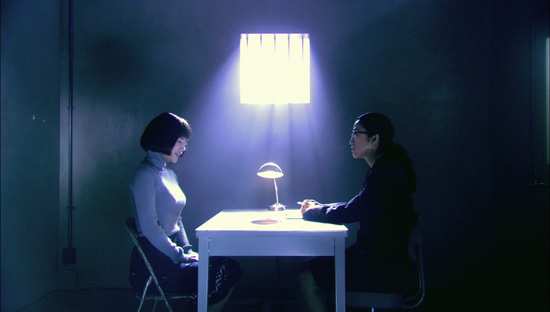
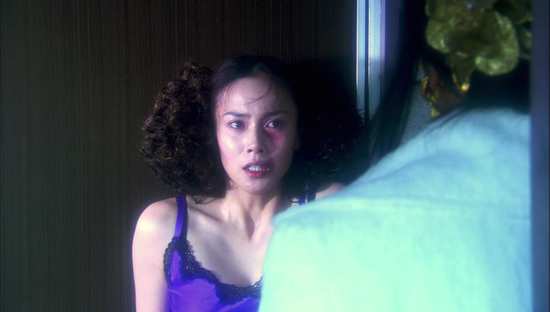

Your Opinions and Comments
Be the first to post a comment!